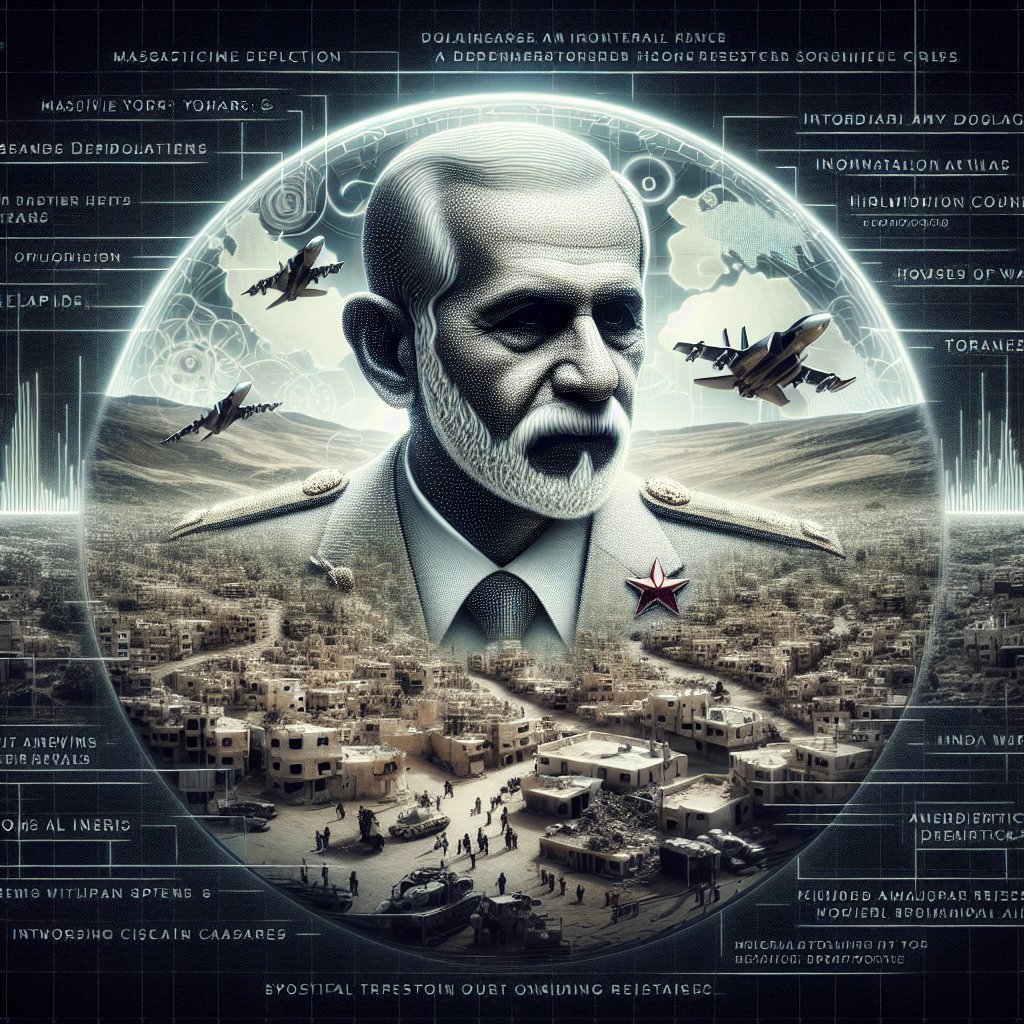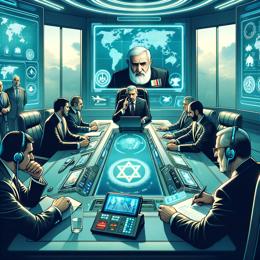Image created by AI
Yahya Sinwar Takes the Helm as Hamas' New Leader Amid Regional Tensions
In the wake of the assassination of Ismail Haniyeh, Hamas has named Yahya Sinwar, a prominent figure within the organization, as the new leader of its political bureau. This decision underscores the strategic importance of Gaza in the group's functional and political framework against the backdrop of a severe Israeli offensive.
Yahya Sinwar, a 61-year-old who was already a leading force in Gaza, embodies the relentless spirit of the Palestinian resistance. His rise to leadership arrives amid a period of upheaval, following an Israeli infiltration on October 7 that left over a thousand individuals dead and led to hundreds being detained. The resultant Israeli military operation has led to catastrophic conditions in Gaza, with civilian casualties in the thousands and the displacement of nearly the entire 2.3 million population, intensifying an already dire humanitarian situation.
The assassination of Haniyeh in Tehran vaulted Sinwar, characterized by Israel as the architect of the October 7 attack, to the forefront of the Hamas hierarchy. The response from Hezbollah to Sinwar's selection as leader has been one of support, framing it as a powerful testament to the unyielding unity and resolve of Hamas amid trying times.
The significance of Sinwar's leadership is not lost on observers; it's seen as an affirmation of Hamas' tenacity and its unyielding grip on Gaza. Nour Odeh, a Palestinian political analyst, emphasizes that Sinwar’s ascension imparts a clear message regarding the centrality of Gaza as the locus of power within Hamas, especially in regard to ceasefire negotiations.
Hailing from a refugee camp south of Khan Younis in Gaza, Sinwar's history is steeped in the defense of his homeland. A former head of Al-Majd security apparatus, Sinwar is no stranger to controversy, having cultivated a reputation focused on combating suspected collaborators with Israel. His resilience has captivated Palestinians as he continues to elude Israeli forces, standing as an emblem of defiance despite the threats posed by Israeli defense chief Yoav Gallant.
Sinwar now enters international scrutiny, with the International Criminal Court (ICC) issuing arrest warrants for him, alongside specific Israeli leaders for alleged war crimes related to the conflict on October 7. As violence and political upheaval continue to destabilize the region, Sinwar's assumption of Hamas leadership reveals much about the organization's strategic priorities moving forward. His history and the recent volte-face following Haniyeh's assassination imply that Hamas – and Gaza more generally – will remain central to the Palestinian resistance.










